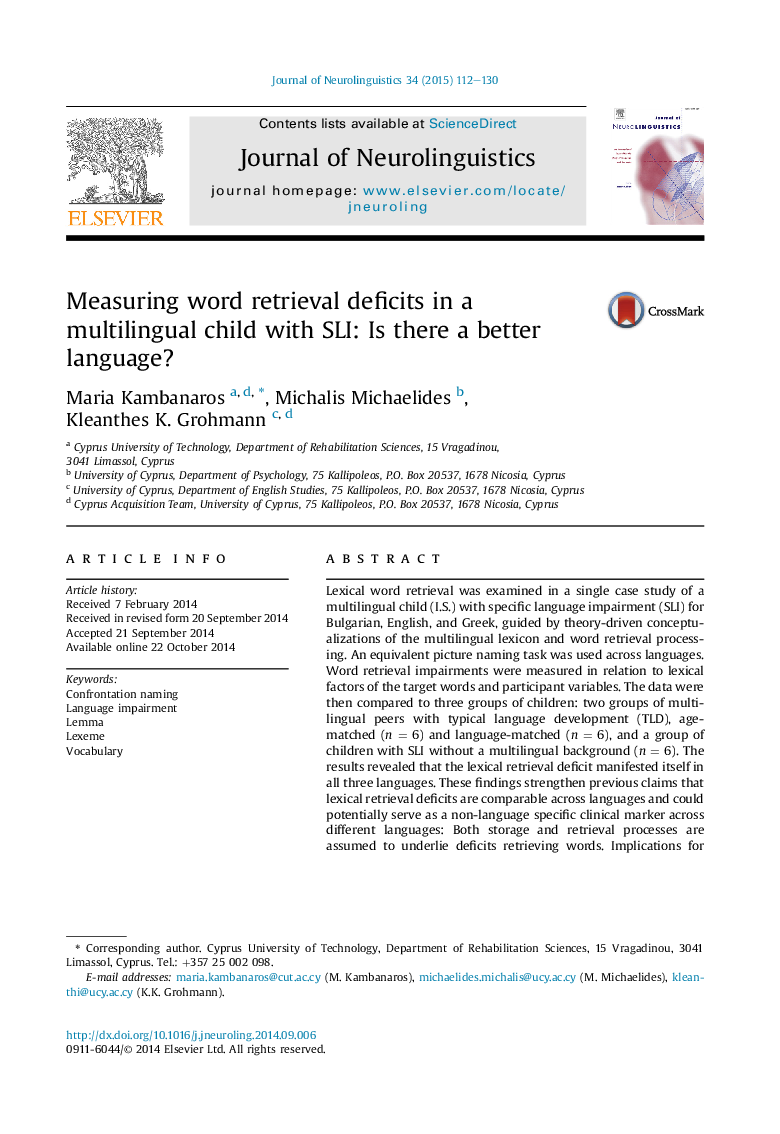| Article ID | Journal | Published Year | Pages | File Type |
|---|---|---|---|---|
| 911753 | Journal of Neurolinguistics | 2015 | 19 Pages |
•Lexical retrieval deficits were evident in the three languages of a child with SLI.•Word retrieval deficits could serve as a non-language specific clinical marker of SLI across languages.•All languages must be assessed in the multilingual context for diagnostic accuracy.•Breakdown in storage and retrieval mechanisms underlie lexical retrieval deficits.
Lexical word retrieval was examined in a single case study of a multilingual child (I.S.) with specific language impairment (SLI) for Bulgarian, English, and Greek, guided by theory-driven conceptualizations of the multilingual lexicon and word retrieval processing. An equivalent picture naming task was used across languages. Word retrieval impairments were measured in relation to lexical factors of the target words and participant variables. The data were then compared to three groups of children: two groups of multilingual peers with typical language development (TLD), age-matched (n = 6) and language-matched (n = 6), and a group of children with SLI without a multilingual background (n = 6). The results revealed that the lexical retrieval deficit manifested itself in all three languages. These findings strengthen previous claims that lexical retrieval deficits are comparable across languages and could potentially serve as a non-language specific clinical marker across different languages: Both storage and retrieval processes are assumed to underlie deficits retrieving words. Implications for vocabulary instruction in the multilingual classroom setting are discussed.
